Search Posts
Recent Posts
- Outdoors in RI: Help keep recreation areas clean. Invasive Milfoil, trash. 2A update – Jeff Gross July 26, 2024
- Real Estate in RI: Highest-ever sale in Queen’s Grant, EG $1.25M, by Residential Properties July 26, 2024
- Homeless in RI: Gov. Newsom issues Executive Order. Remove California’s encampments. July 26, 2024
- Let the games begin. XXXIII Summer Olympics – John Cardullo July 26, 2024
- GriefSPEAK: What would you do? – Mari Dias Nardolillo July 26, 2024
Categories
Subscribe!
Thanks for subscribing! Please check your email for further instructions.
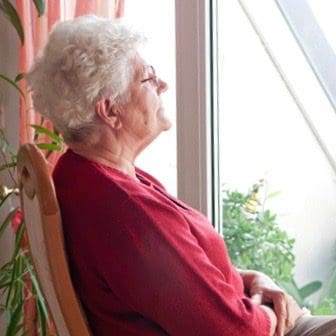
Hail Mary PR effort puts spotlight on inadequate RI nursing home Medicaid rates – Herb Weiss
By Herb Weiss, contributing writer on aging issues
Last week, a campaign by Linn Health & Rehabilitation told of its efforts to keep its doors open. With no immediate state reimbursement fix in sight, the nonprofit nursing home, established 52 years ago, launched a savvy PR move, calling it a “Hail Mary” effort to find its Christmas miracle donors and funding to prevent it from closing or forcing the displacement of 71 residents and the laying off of 150 staff members. A clever twist on the message resulted in a story on Rhode Island television stations, talk radio, and pick up by other media outlets.
For over 10 years, Linn Health, which had only recently been named a 2024 “Best Nursing Home” and “High-Performing” short-term rehabilitation home in the nation by U.S. News & World Report, has been fighting rampant inflation, rising food and utility costs, high temporary staffing agency rates, and low state Medicaid reimbursement rates that haven’t kept pace with increasing expenses – as most nursing homes have been as well.
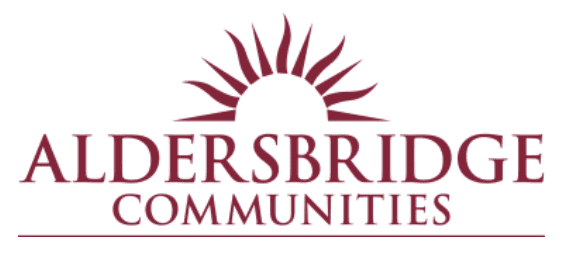
Linn Health & Rehabilitation is currently losing $100,000 a month, notes Richard Gamache, MS, FACHCA, chief executive officer of Aldersbridge Communities which is the nonprofit that operates the nursing facility, senior housing, affordable assisted living, and outpatient rehab for older Rhode Islanders.
“For years, we’ve operated with a slight loss, but the other Aldersbridge entities were able to subsidize that loss. As a mission-driven provider for low-income people and those on Medicaid, we aren’t here to make money, we’re here to serve our community’s needs,” he says, noting that the gap between the facility’s costs and its daily Medicaid rate is now just too great.
“Bleeding Cash” drastically impacts facility’s bottom line
Gamache noted that Aldersbridge Communities had been able to support its nursing home but it has now reached a “tipping point.” During COVID the federal and state governments were very generous with grants. “That’s no longer an option, and the money is running out quickly,” he says.
“We’re in dire straits, financially,” admits the seasoned CEO, who has been in the long-term care field for over 43 years. “We’re struggling. We have some vendors who understand and are being patient with us, and others who tack on charges if we don’t pay on time,” he says.
“Eighty-two percent of our residents are on Medicaid and don’t have families who can take care of them. We are their family and support system, and some have been discharged from other assisted living communities because they ran out of money,” he says.
In recent months, Gamache reports he has meet with peers, East Providence lawmakers, state officials, and even nursing facility trade groups seeking a viable solution to the state’s Medicaid reimbursement issues. “I have proposed options such as bridge funding and higher Medicaid reimbursement rates, as many other states have done, to address this nationwide problem. It seems only nursing home residents, their families, employees, leaders of surviving homes that are hanging by their fingernails, and some advocacy groups care about the financial predicament we are in. We’ve made everyone aware and we will not stop fighting for funding that we need,” he says.
According to Jamie L. Sanford, LNHA, LCSW, administrator of Linn Health & Rehabilitation, since 2022, six nursing homes in Rhode Island have shut their doors permanently, not counting the four that closed prior to the COVID-19 pandemic. Three more have filed for bankruptcy, she says, noting that many nursing homes throughout the nation are in the same financial predicament.
“Linn’s Medicaid reimbursement rate averages $255 per patient per day, and it costs $411 to care for each patient per day,” states Sanford. “The general population thinks that nursing homes make a lot of money. Perhaps that’s true in some for-profit organizations where they are owned by large corporations, but nonprofit homes are robbing Peter to pay Paul. These are the homes – like us – that are on life support, operationally speaking,” she notes.
Joseph Wendelken of the RI Department of Health says that the state is attempting to ease the financial burden of facilities providing care to Rhode Island nursing facility residents. “Nursing homes in Rhode Island received an increase in Medicaid reimbursement rates on October 1, 2023. The increase varied by facility, but it was approximately 6.9%. Per Rhode Island legislation, there is a mandatory review of nursing home expenses every three years called the ‘re-array.’ The current re-array is in progress and any potential increase in the nursing home rates would begin as of October 1, 2024,” he noted.
But facilities can’t wait a year for the state’s Medicaid adjustment to kick-in and immediate action must be taken. “Essentially, the state is breaking its own law by not conducting the re-array every three years, which was put in place to keep up with the national nursing home inflation index. The last re-array was in October of 2012. Even with an increase next fall, it won’t be enough to help close the funding gap now,” charges Michael Cole, vice president of the Board of Trustees for Aldersbridge Communities.
It’s time for a savvy PR campaign
With no immediate financial solutions in sight, Gamache and his management team staff have been working on their own grassroots PR campaign, calling it a “Hail Mary” effort, to save Linn Health from having to displace its staff and residents.
Linn Health’s PR campaign was seen as the next logical step to quickly tackle its financial problems, after months of alerting staff officials of the need for action.
“Everyone with the authority to do something to help has all the information they need. Now we need action. I often hear, ‘there’s not enough money in the budget’ but the fact is, these are policy decisions. It’s about priorities,” says Gamache.
“Do we value our older adults enough to provide for their basic needs? What kind of values do we have as a state and as a society?” asks Gamache.
“Now it’s time to get the story into the public domain. Many people feel that nursing homes are making money hand over fist and that we’re all diverting funds to pay for yachts,” says Gamache. “Although it’s true that there are some bad apples in this profession, I believe most of us want to do what’s right, and for Linn Health and Aldersbridge Communities, a mission-driven non-profit, we’ve always cared more about better outcomes for our people than more income. We just can’t afford to operate much longer,” he warns.
The residents and staff at Linn are doing everything they can, including holding baked goods sales to raise funds. “No one wants to leave Linn, and no one wants us to be sold to another organization,” Sanford comments. “During this season of holiday miracles, we’re working to find donors who believe in what we’re doing now, and for our future. There must be a donor out there who can help us fight the proverbial ‘grinch’ that is causing nursing homes to disappear throughout the country and in our state. All we want for Christmas is to keep caring for our residents who depend on us,” she says.
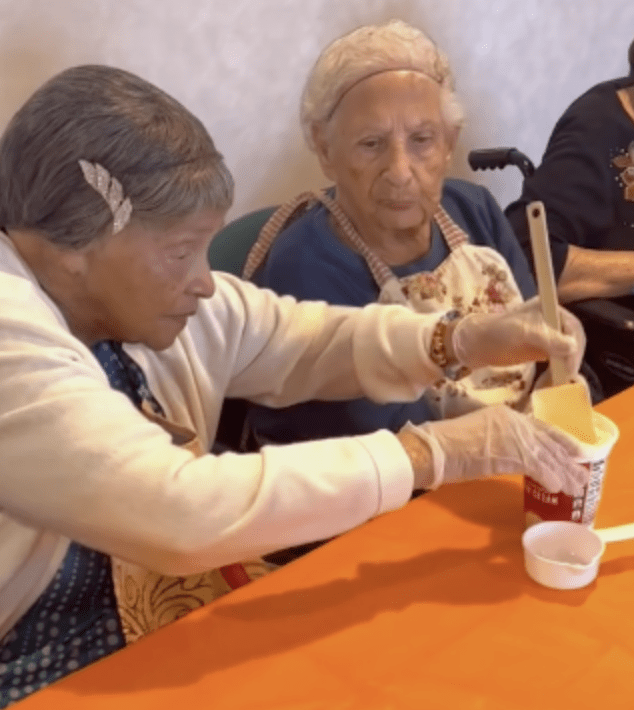
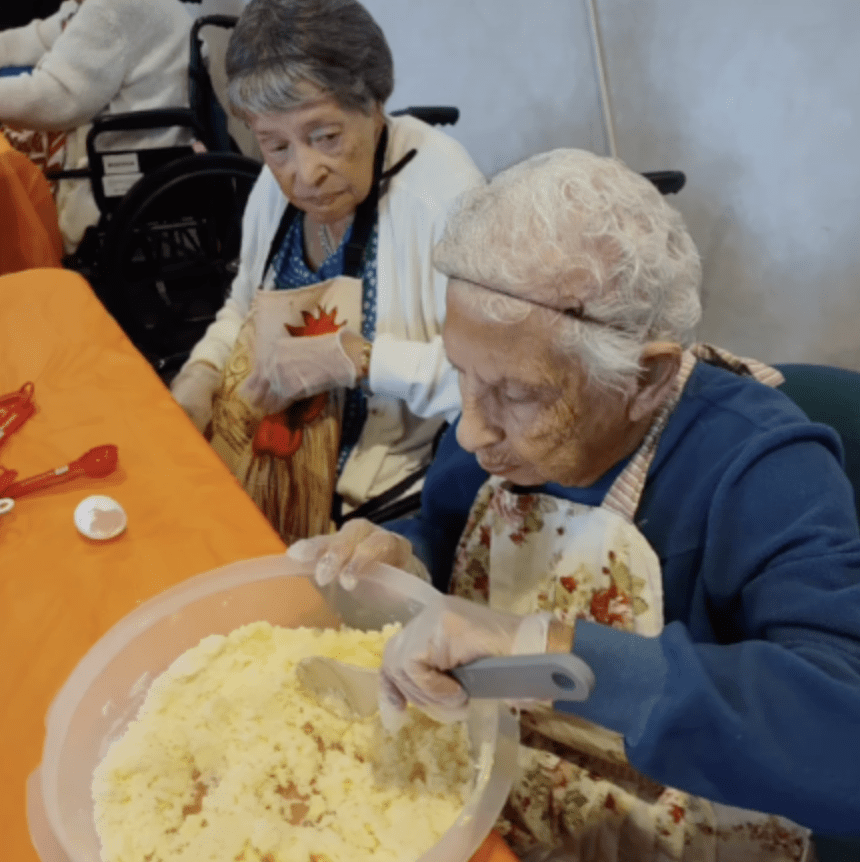

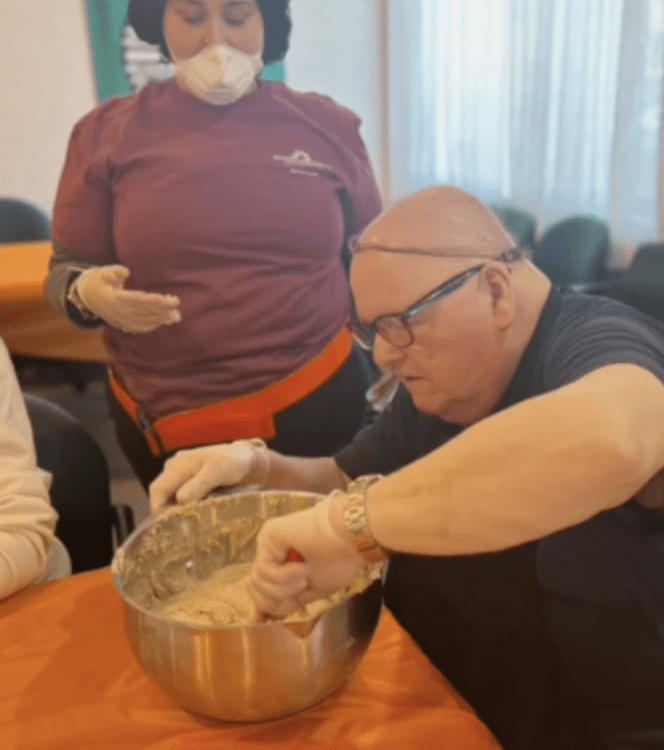
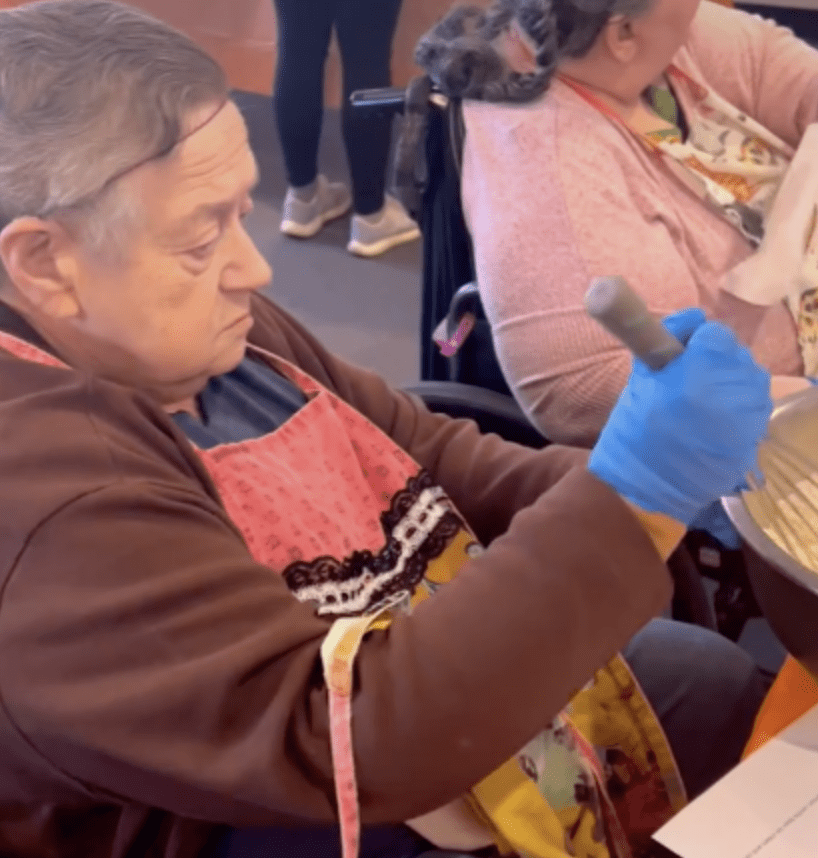
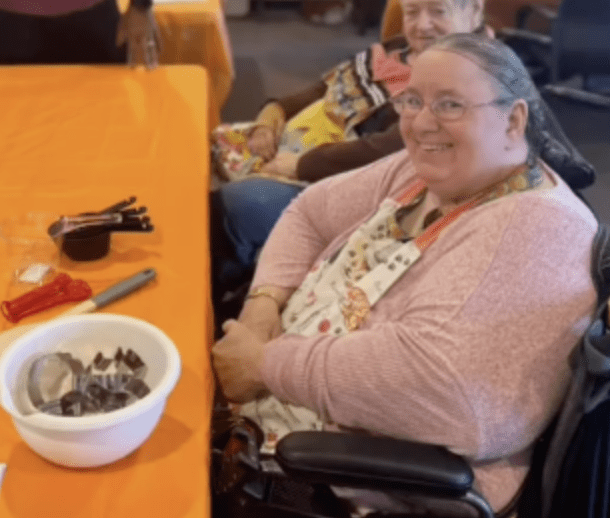
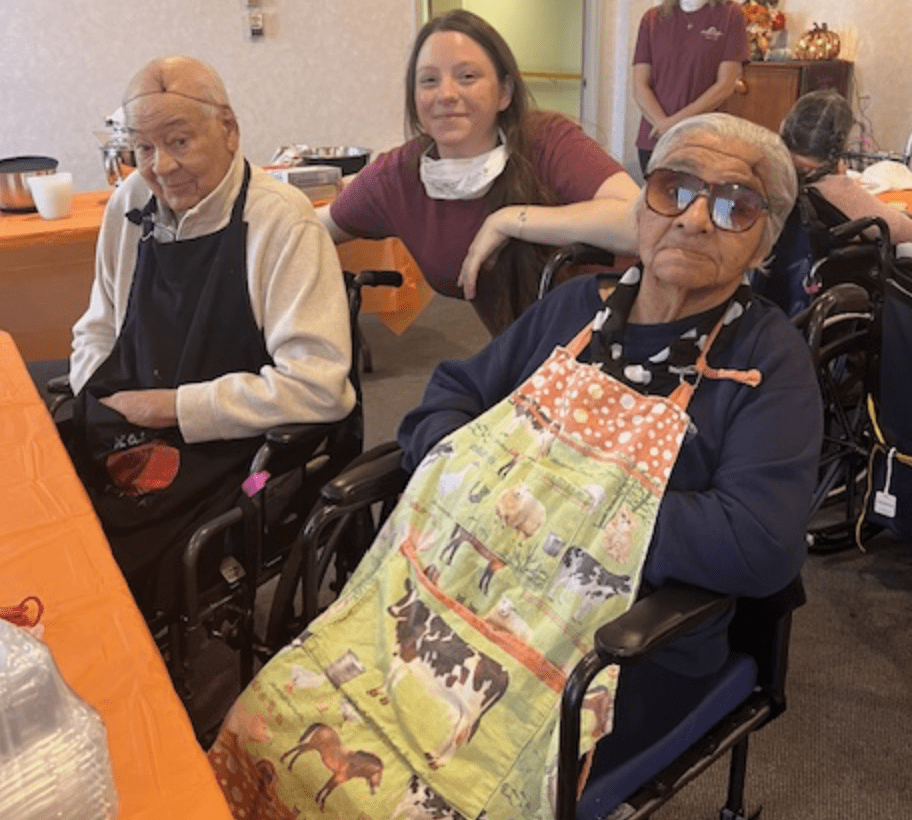
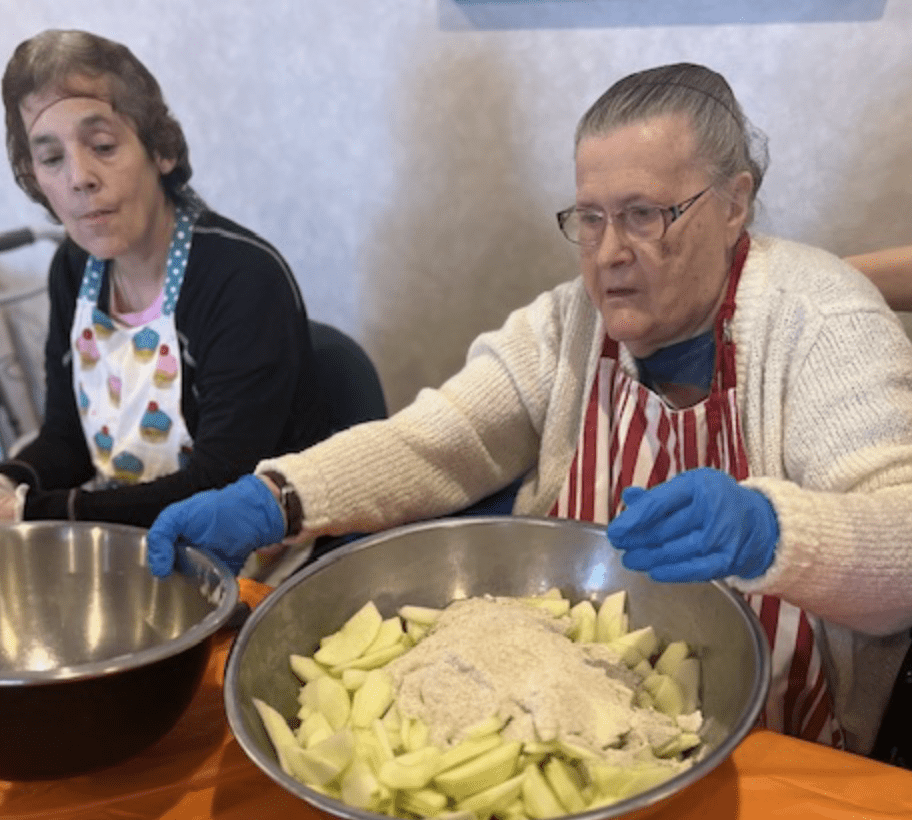
Once they learned of Linn Health’s financial situation, residents took it upon themselves to do whatever they could to raise money to save their home from potential closure. Cooking with staff, the energetic group raised over $2,000 with their holiday bake sale to help “keep Linn Health open”.
“This situation exemplifies the dire straits that RI nursing homes are in, especially the community-based ones like non-profit providers. We have been working with state officials, including the Governor’s office, EOHHS, the Health Department, and other stakeholders to highlight the crisis and the need for immediate action,” says James Nyberg, president and CEO of LeadingAge Rhode Island. LeadingAge, founded in 1989, is a not-for-profit membership organization of not-for-profit providers of aging services, including not-for-profit nursing homes, assisted living residences, and senior housing providers, and adult day health services.
“They have recognized our concerns and we are hopeful that some action will be taken ASAP to provide an infusion of funding. Any nursing home closure has profound and disruptive consequences for residents, staff, families, and the broader community. With six nursing homes closing and three in receivership, how many more proverbial canaries in the coal mine do we need?” adds Nyberg. .
“Unfortunately, Linn Health’s story is emblematic of a wider crisis facing Rhode Island nursing facilities. Nursing facilities are facing unprecedented increases in nearly all aspects of providing care – staffing costs, energy prices, inflation on food, medical supplies, etc. At the same time, Medicaid rates have not kept pace,” says John Gage, president and CEO of the Rhode Island Health Care Association. In 2023, RI’s nursing homes are being paid by Medicaid based on the actual allowable cost of care from 2011 with an average of approximately 1% increase annually,” he said. RIHCA was founded in 1972, and has 63 skilled nursing facilities who are members.
Finally, Maureen Maigret, former Director of the RI Department of Elderly Affairs who serves as a member of the Long-Term Care Coordinating Council and chair of its Aging in Community Subcommittee, weighs in. “The financial challenges faced by Linn Health are worrisome and point to a need for the State to take a very close look at the financial status of Rhode Island nursing homes in general,” she said, noting that few persons can afford privately paid nursing home care at an average cost of $113,000 per year. “So unless skilled care is paid by Medicare, Medicaid becomes the payer for a large percent of nursing home care in Rhode Island and rates must be adequate to provide the quality care we expect our loved ones to receive if they need the round the clock care provided in nursing homes,” she adds.
Linn is asking that interested charitable organization and donors willing to help Linn Health & Rehabilitation’s financial situation to contact Aldersbridge Communities Director of Development, Elise Strom at [email protected], 401-438-4456 ext. 136.
___

Herb Weiss has enjoyed a distinguished 43-year career in journalism, earning a national reputation as an expert on aging, health care and medical issues. Over 900 articles that he has authored or co-authored have appeared in national, state and local publications and newspapers.
Today, Herb’s weekly newspaper column appears in the Blackstone Valley’s Woonsocket Call and Times, a daily newspaper, and in RINewsToday, a statewide digital news site. He also writes for the Warwick Beacon, Cranston Herald and Senior Digest.
In 2016, he published his first book, a collection of his articles for seniors, called Taking Charge: Collected Stories on Aging Boldly. Herb has published an additional anthology of his collected articles and columns in 2021 called Taking Charge, Volume 2: More Stories on Aging Boldly. He is a recipient of the 2003 AARP Rhode Island’s Vision Award for his weekly commentary that appeared in the former Pawtucket Times.
He is a two-time recipient (1994 and 1999) of the American College of Health Care Administrator’s National Award for his coverage of long-term care issues. He was also awarded the Distinguished Alumni’s Award by the Center for Studies in Aging, North Texas State University, in 1997, for his career coverage of aging issues. That year, he was also selected by the prestigious McKnight’s LTC News to be one of its “100 Most Influential People” in Long-Term Care.
Herb was appointed by five governors to serve on the Rhode Island Advisory Commission on Aging. The appointments were made by Governors Bruce Sundlun (1994), Lincoln Almond (1999, 2000), Donald L. Carcieri (2005), Gina Raimondo (2016), and Daniel J. McKee (2022). He was also appointed by Rhode Island Senate President Dominick J. Ruggerio in November 2021 to serve on the Advisory Council on Alzheimer’s Disease Research and Treatment.
Herb is a 2012 graduate of the Theta II Class of Leadership Rhode Island.
To purchase his books, Taking Charge: Collected Stories on Aging Boldly and a sequel compiling weekly published articles, go to herbweiss.com.

The article quotes Joseph Wendelken of the RI Department of Health stating…”Per Rhode Island legislation, there is a mandatory review of nursing home expenses every three years called the ‘re-array.’ The current re-array is in progress and any potential increase in the nursing home rates would begin as of October 1, 2024,” he noted.” What Mr. Wendelken fails to mention is that this requirement for re-array of actual nursing home expenses every three years has not been done since the price-based reimbursement system was implemented in 2012 using actual expenses from 2011. The state failed to conduct mandatory re-arrays in 2015, 2018 or 2021 to adjust Medicaid rates based on actual reimbursable expenses. In addition, the statutory annual inflation index that is required to be applied each year has been serially slashed or eliminated in nearly every year since the implementation of the reimbursement model. Only in the last three budgets was the full inflation index provided. The result is a system in which RI nursing homes are being paid by Medicaid based on 2011 expenses that have been inflated by approximately 1% per year on average over a twelve-year period. As a direct result, RI Medicaid rates for nursing homes are woefully inadequate. This first ever re-array should provide some significant relief, but delaying that until October 1, 2024 will likely result in the closure of more facilities before that is realized.
Yes – what an eye-opening and powerful article to remind our society – and political officers – that our country’s Nursing Home stock requires a top-level effort to maintain some basic quality of life for our treasured elderly – and many sick, younger individuals – in today’s real world.
One of the ideal concepts is to place a modest Tax on the Internet (purchases) that would be restrictive into a Medicare / Medicaid account – the Internet has put many companies (brick-n-mortar)_out of business that decimated our retail industry (and put many – young folks – in credit hazards) just over the last few years.
The federal and state governments should amend the applicable laws and regulations and add a COLA (inflation) to reimbursement levels – this would apply to Nursing Homes & Health Care Facilities … including the very vital and valuable services of HOME HEALTH AIDES – which save all parties millions of dollars per year.
The Campaign should reach out as an informational directive to all schools (instead of wasting teachers, students & parents time with crazy ideologies of race, gender and disturbing matters that belong in the family unit), non-profits, municipalities, state workers and appointed & elected officials to let – educate – these groups and individuals know (reinforce) that priorities must be addressed.
Thanks for the opportunity to sound off and appreciate the author(s) journalistic presentation on this urgent and salient matter = GOD Bless & Happy, Holy Holidays!
Thank you, Herb, for bring up this most important issue. I can only hope and urge the elder advocacy groups to tackle this problem by making this emergency a top item on their agenda. Residents of these nursing homes, fragile by definition, are suffering the stress of knowing that their homes may close. I would like to hear from the Chairs of these advocacy groups.